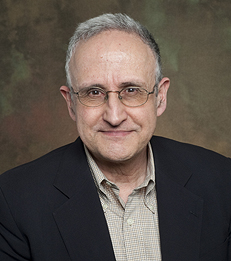 The ISE Department is pleased to announce that Professor Michael Pinedo, Julius Schlesinger Professor of Operations Management Technology, Operations, and Statistics (TOPS) Department Stern School of Business, New York University will give the Spencer C. Schantz Technical Talk titled Scheduling Applications in Industry - Steelmaking and Microelectronics on Wednesday, May 4, 2022 from 4:30 p.m. to 5:30 p.m. in Mohler Laboratory room 453, 200 West Packer Avenue, Bethlehem, PA.
The ISE Department is pleased to announce that Professor Michael Pinedo, Julius Schlesinger Professor of Operations Management Technology, Operations, and Statistics (TOPS) Department Stern School of Business, New York University will give the Spencer C. Schantz Technical Talk titled Scheduling Applications in Industry - Steelmaking and Microelectronics on Wednesday, May 4, 2022 from 4:30 p.m. to 5:30 p.m. in Mohler Laboratory room 453, 200 West Packer Avenue, Bethlehem, PA.
A luncheon will be served at Lehigh’s University Center in the Asa Packer Dining Room from 12:00 p.m. to 2:00 p.m. for faculty and students.
Registration is required for both events. Please email Sheila Dorney: skd220@lehigh.edu to register by April 20, 2022. If you cannot attend in person, please request the Zoom link and it will be emailed to you.
Abstract:
Efficient scheduling of industrial systems typically have a major impact on their productivity levels. In this presentation we focus on some scheduling applications in two different industries, both being of importance, namely steelmaking and microelectronics.
In steel production the steelmaking-continuous casting (SCC) process is typically a bottleneck. Its scheduling has become more challenging over the years. We first describe the modeling of the essential features of an SCC process, such as unrelated parallel machine environments, stage skipping, and maximum waiting time limits in between successive stages. The objective is the minimization of the total weighted waiting time, total earliness, and total tardiness. The problem can be formulated as a mixed integer program and we present an iterated greedy matheuristic that solves its subproblems to find a near-optimal solution. Through numerical experiments, we show the effectiveness of such an algorithm.
The microelectronics industry is conceptually very different from the steel making industry. The manufacturing processes in a wafer fab can be modeled as flow shops with re-entry, which are special cases of job shops with recirculation. The re-entries of the orders make the associated scheduling problems conceptually very difficult. We discuss the properties of the optimal schedules for various different objective functions.
We conclude this presentation with some other scheduling applications in industry that deserve research attention.
Bio:
Michael Pinedo is the Julius Schlesinger Professor of Operations Management at New York University's Stern School of Business. He received an Ir. degree in Mechanical Engineering from Delft University of Technology (in the Netherlands) in 1973 and a Ph.D. in Operations Research from the University of California at Berkeley in 1978. He has taught at Columbia University from 1982 till 1997 and at New York University since 1997. His research focuses on the modeling of service systems, and in the development of planning and scheduling systems, as well as systems for measuring operational risk. Over the last decade his research has focused on operational risk in financial services. He is co-editor of Creating Value in Financial Services: Strategies, Operations, and Technologies (Kluwer), and co-editor of Global Asset Management: Strategies, Risks, Processes, and Technologies (Palgrave/McMillan). He has co-authored the book Operations in Financial Services - Processes, Technologies, and Risks (NOW Publishers) together with Yuqian Xu. Professor Pinedo has been actively involved in industrial system development. He supervised the development of systems at Goldman Sachs, Siemens, and at Merck. Professor Pinedo is Editor of the Journal of Scheduling (Springer), Associate Editor of the Journal of Operational Risk, Department Editor of Production and Operations Management and Associate Editor of Annals of Operations Research.
